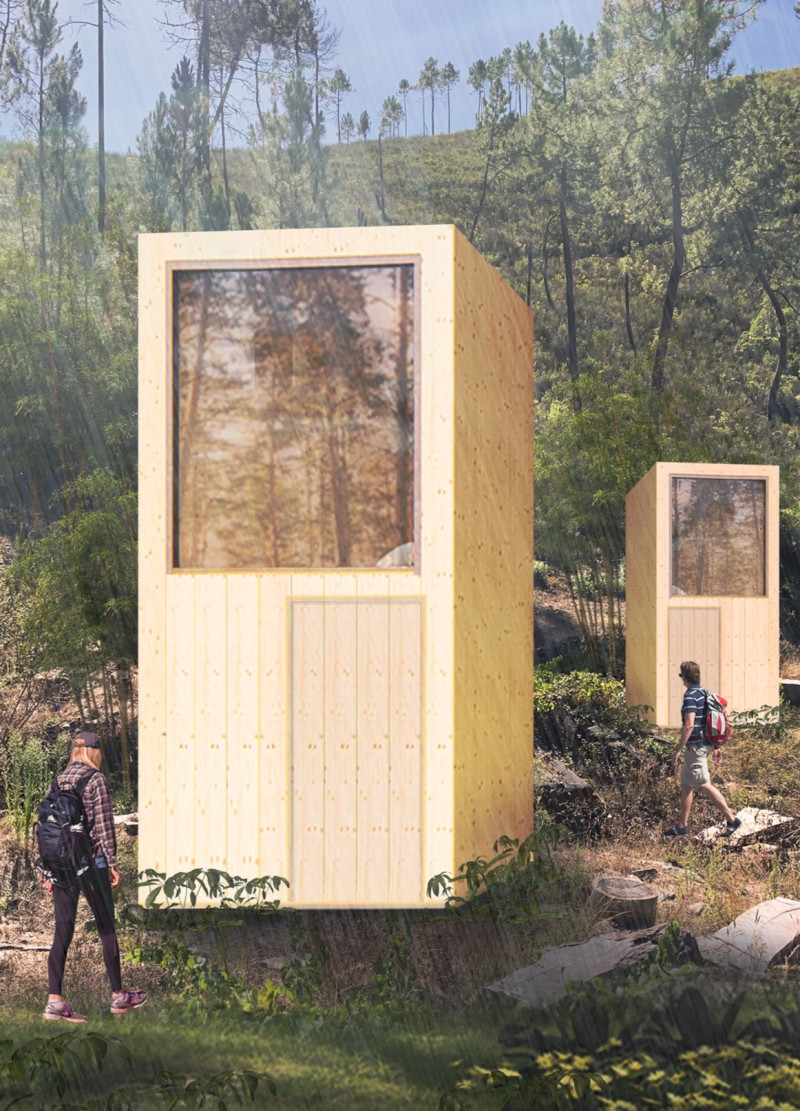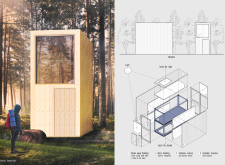5 key facts about this project
The Container Meditation Cabin is a carefully designed retreat that aims to blend with its natural surroundings. This structure serves as a place for introspection and meditation, allowing users to experience two contrasting environments within its walls. The design concept promotes a journey from darkness to light, encouraging visitors to reflect and rejuvenate in a peaceful setting.
Spatial Configuration
The cabin features two distinct zones that cater to different emotional needs. The ground floor is known as the Silent Area & Spa Area, which is enclosed by solid walls. This setting fosters an intimate and calming atmosphere, ideal for moments of personal reflection and relaxation. The thoughtful layout emphasizes solitude and creates a nurturing environment for mindfulness.
In contrast, the Light Connecting Area and Meditation Area occupy the second floor. This open space connects users with natural light, creating a cheerful and uplifting ambiance. The experience changes dramatically as one moves between the two levels, highlighting the contrast between introspection and the joyful engagement with sunlight.
Materiality and Aesthetics
Material choices play a crucial role in shaping the comfort and usability of the cabin. The primary structure is made from a shipping container, offering strength and flexibility in design. Inside, Hinoki wood is used for its pleasant scent and warmth, enhancing the sensory experience. Glass elements have been integrated to allow natural light to flow through the spaces, further enriching the overall atmosphere of the cabin.
Detailing and Integration
Design details illustrate a thoughtful approach to transitioning between spaces. Users move smoothly from the quiet ground floor to the bright upper level, with each area offering its own unique experience. The connection between the cabin and its environment is evident in the way the building responds to its landscape. The relationship between solid walls and glass surfaces emphasizes both privacy and openness, enhancing the experience as one navigates through the cabin.





















































